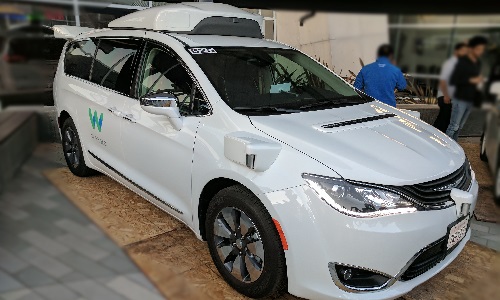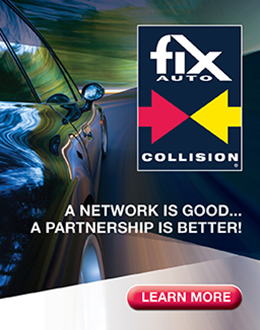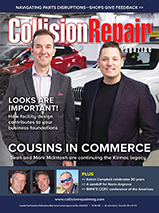By Jeff Sanford
Toronto, Ontario — June 4, 2018 — In this week’s AV Report: Waymo orders thousands more Windsor-built Pacificas, GM Cruise gets an investment from a Singularity believer and much, much more!
The size of Waymo’s fleet of self-driving Chrysler Pacifica minivans continues to expand. Several media outlets reported last week that Google’s Alphabet unit announced that it struck a deal with Fiat Chrysler Automobiles (FCA), for an, “additional 62,000 minivans to be deployed as robot taxis. Moreover, the two companies have also begun discussions about how to eventually sell self-driving cars to customers as personally owned vehicles.” The story goes on to note that, “Selling cars with Waymo’s self-driving technology at Fiat Chrysler dealerships would be a dramatic escalation in Waymo’s plan to bring driverless cars to the masses. To date, the company has spoken only vaguely about licensing its self-driving hardware and software to automakers. Today’s confirmation of negotiations with FCA is the first indication that you may be able to own a self-driving car built by Waymo.” However, any such plans are, “probably years away from happening,” according to the report. As well: “Waymo is widely seen as having the most advanced self-driving stack in the industry, with traditional automakers like GM and Ford nipping at its heels. The company currently has around 600 minivans in its fleet, some of which are used to shuttle people around for its Early Rider program in Phoenix, Arizona; others are being tested in states like California, Washington, Michigan and Georgia.” A deal for so many Pacificas would be worth something near $1 billion. The minivans are plug-in hybrid variants with Waymo’s self-driving hardware and software built in, according to the story. Apparently the two companies co-staff a facility in Michigan, near FCA’s U.S. headquarters, where employees from both companies are engineering the vehicles.
General Motors announced this week that the SoftBank Vision Fund will invest $2.25 billion in GM Cruise Holdings. The investment will help the GM Cruise with its plans to commercialize automated vehicles. GM will also invest $1.1 billion in GM Cruise upon closing of the transaction according to a Reuters report. Mary Bara, chairman and CEO, GM, was quoted as saying, “Our Cruise and GM teams together have made tremendous progress over the last two years. Teaming up with SoftBank adds an additional strong partner as we pursue our vision of zero crashes, zero emissions and zero congestion.” Michael Ronen, managing partner, SoftBank Investment Advisers, said, “GM has made significant progress toward realizing the dream of completely automated driving. The GM Cruise approach of a fully integrated hardware and software stack gives it a unique, competitive advantage. We are very impressed by the advances made by the Cruise and GM teams, and are thrilled to help them lead a historic transformation of the automobile industry.”
The SoftBank Vision Fund is a part of SoftBank Group, a Japanese multinational conglomerate holding company headquartered in Tokyo, Japan. The company is run by Masayoshi Son, who is the chairman and CEO. The company invests in everything from semiconductors to artificial intelligence. It is large stakes in companys like Sprint, Alibaba and Boston Robotics. The company is the 38th largest public company in the world, and the 4th largest publicly-traded company in Japan according to Wikipedia. Masayoshi Son also happens to be a believer in Singularity, the idea that artificial intelligence is about to begin to leap ahead in complexity and sophistication. At a rate similar to the way advances in memory size on silicon chips grew exponentially through the 90s, so too will AI leap ahead in terms of its development. Those who believe in Singularity assume that over the next couple of decades artificial intelligence will advance beyond human cognitive ability. According to Son, in about 30 years, “artificial intelligence will have an IQ of 10,000.” This is compared to a human with an average IQ of 100, with the odd genius being 200. Once AI can be run on massive computers, it will be able to advance far beyond human capabilities. We’ll be able to interface with this technology in all kinds of ways. According to some Singularity believers, the super intelligence will be so insightful, so helpful and amazing people will begin to worship it like a God. Some call Singularity a religion for nerds. The biggest modern proponent is Ray Kurzweil, who wrote a couple of key books on the subject back in the late 1990s and 2000s (The Age of Spiritual Machines being one of the most well-known). Today Kurzweil is a board member of Google. Son has been quoted as saying, “Singularity is the concept that [mankind’s] brain will be surpassed, this is the tipping point, crossing point, that artificial intelligence, computer intelligence surpasses [mankind’s] brain and that is happening in this century for sure. I would say there is no more debate, no more doubt.” Anthony Levandowski, a one-time Uber engineer, is another tech geek who talks about Singularity. He has even mused about creating a church based on it. Though, some criticized that idea as simply a big scheme to dodge taxes. It’ll be interesting to see if Son is right, but he’s certainly putting his money where his mouth is.
The issue of desperate cab drivers has become a serious one in the city as many suffer the effects of ride-hailing services like Uber and Lyft. According to the Times, “New York City’s cab industry, dependent on the market value of the once-coveted taxi medallion, has been upended by the proliferation of Uber and other ride-sharing services. Drivers have been demanding changes at City Hall to protect their livelihood, but at least five cabbies have buckled under the strain of debt since December as others describe working 12 and 14-hour shifts to make up for the lost income. The medallion system was created to limit the number of cabdrivers, but ride-sharing apps have rendered it useless, said Bhairavi Desai, executive director of the New York City Taxi Workers Alliance. Last year, data showed that more people used Uber than yellow cabs in the city. Once sold for more than $1 million, taxi medallions are now selling for as little as $175,000, according to data collected by the Taxi and Limousine Commission.”





































